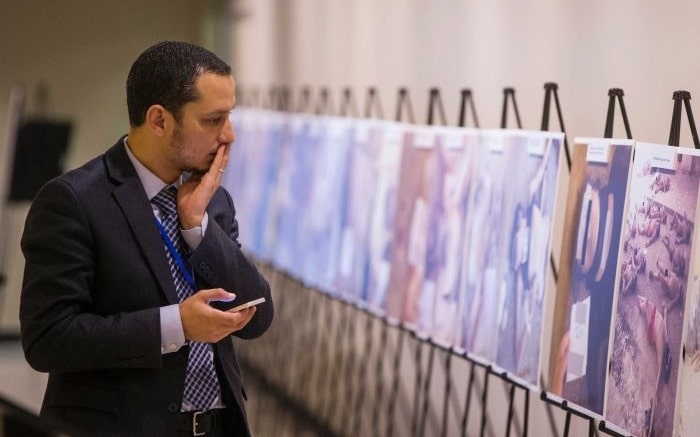New US sanctions against the Assad regime have come into effect.
The sanctions cite the regime’s crimes against humanity, including mass killings of civilians. They are named after the defected military photographer “Caesar”, who brought out images of thousands of detainees slain by executions, tortured to death, or perishing from inhumane conditions.
The US Ambassador to the UN, Kelly Craft, told the Security Council on Tuesday:
Our aim is to deprive the Assad regime of the revenue and the support it has used to commit the large-scale atrocities and human rights violations that prevent a political resolution and severely diminish the prospects for peace.
She said the pressure on the Syrian economy would seek e measures to “prevent the Assad regime from securing a military victory”.
Russia, the essential backer of the regime, and China criticized the sanctions. Moscow’s U.N. Ambassador Vassily Nebenzia said, “The purpose of these measures is to overthrow the legitimate authorities of Syria.”
The regime’s UN Ambassador Bashar Ja’afari, speaking to the UN Human Rights Council in Geneva, said Washington was trying to impose American law on the world.
On May 28 the European Union renewed sanctions on the regime over its “violent repression”.
Assad Regime Under Economic Pressure
The regime, which has vowed to “regain every inch” of Syria after 111 months of conflict, faces economic crisis despite Russia-enabled offensives which have reoccupied much of the country.
More than 75% of GDP has been lost, and there has been little reconstruction. Corruption is rampant, with a feud between the regime and Assad’s billionaire cousin Rami Makhlouf.
The Syrian pound has collapsed to more than 3000:1 v. the US dollar, compared to 500:1 last autumn and about 47:1 at the start of the conflict.
Facing Russian concern about the crisis, Bashar al-Assad dismissed Prime Minister Imad Khamis last week.
See Syria Daily, June 14: Regime Meetings Over Collapsing Currency
UN envoy Geir Pedersen told the Security Council that he hoped to reconvene talks for a Constitutional Committee at the end of August.
The initiative, proposed by Russia in early 2018 to give political legitimacy to the regime, has made little advance. The 150 members — 50 from the regime, 50 from certain opposition groups, and 50 from civil society organizations — finally convened last autumn; however, the Assad regime insisted that the focus be on “sovereignty” and a fight against “terrorism”, its label for anti-Assad political and military factions.
See Syria Daily, Dec 1: Talks on Constitutional Committee Stall

